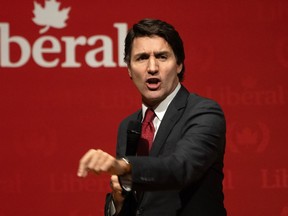VANCOUVER – Contract negotiations resume today in Vancouver in a labour dispute that has paralyzed container cargo shipping at British Columbia’s ports since Monday.
The BC Maritime Employers Association and International Longshore and Warehouse Union Local 514 are scheduled to meet for the next three days in mediated talks to try to break a deadlock in negotiations.
The union, which represents more than 700 longshore supervisors at ports, including Vancouver, Prince Rupert and Nanaimo, has been without a contract since March last year.
The latest talks come after employers locked out workers in response to what it said was “strike activity” by union members.
The start of the lockout was then followed by several days of no engagement between the two parties, prompting federal Labour Minister Steven MacKinnon to speak with leaders on both sides, asking them to restart talks.
MacKinnon had said that the talks were “progressing at an insufficient pace, indicating a concerning absence of urgency from the parties involved” — a sentiment echoed by several business groups across Canada.
In a joint letter, more than 100 organizations, including the Canadian Chamber of Commerce, Business Council of Canada and associations representing industries from automotive and fertilizer to retail and mining, urged the government to do whatever it takes to end the work stoppage.
“While we acknowledge efforts to continue with mediation, parties have not been able to come to a negotiated agreement,” the letter says. “So, the federal government must take decisive action, using every tool at its disposal to resolve this dispute and limit the damage caused by this disruption.
“We simply cannot afford to once again put Canadian businesses at risk, which in turn puts Canadian livelihoods at risk.”
In the meantime, the union says it has filed a complaint to the Canada Industrial Relations Board against the employers, alleging the association threatened to pull existing conditions out of the last contract in direct contact with its members.
“The BCMEA is trying to undermine the union by attempting to turn members against its democratically elected leadership and bargaining committee — despite the fact that the BCMEA knows full well we received a 96 per cent mandate to take job action if needed,” union president Frank Morena said in a statement.
The employers have responded by calling the complaint “another meritless claim,” adding the final offer to the union that includes a 19.2 per cent wage increase over a four-year term remains on the table.
“The final offer has been on the table for over a week and represents a fair and balanced proposal for employees, and if accepted would end this dispute,” the employers’ statement says. “The offer does not require any concessions from the union.”
The union says the offer does not address the key issue of staffing requirement at the terminals as the port introduces more automation to cargo loading and unloading, which could potentially require fewer workers to operate than older systems.
The Port of Vancouver is the largest in Canada and has seen a number of labour disruptions, including two instances involving the rail and grain storage sectors earlier this year.
A 13-day strike by another group of workers at the port last year resulted in the disruption of a significant amount of shipping and trade.
This report by The Canadian Press was first published Nov. 9, 2024.

Comments